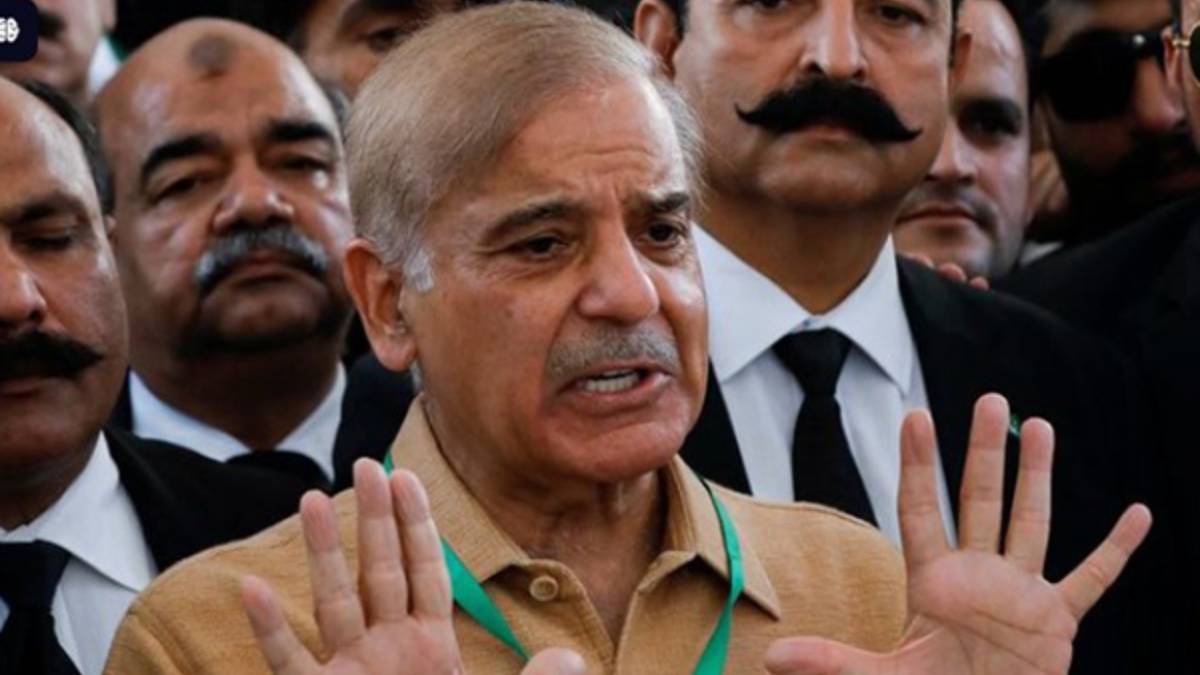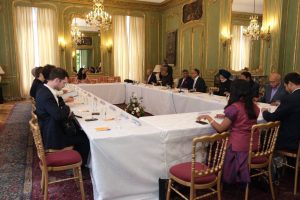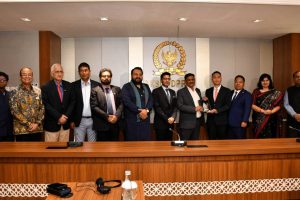In a significant diplomatic statement, Pakistan Prime Minister Shehbaz Sharif on Monday expressed his country’s willingness to engage in dialogue with India to resolve long-pending issues, including Kashmir, water-sharing, trade, and regional counter-terrorism efforts. His comments came during a joint press conference with Iranian President Masoud Pezeshkian in Tehran, as reported by Pakistani media outlet Dawn.
“We are ready to talk, for the sake of peace on water issues with our neighbour,” said Sharif. He further added, “We are ready to talk to promote trade and also, counter-terrorism. We want peace and we will work for peace in the region through talks, on the table.”
Sharif also emphasized the sincerity of Pakistan’s intent, stating, “If they accept my offer of peace, then we will show that we really want peace—seriously and sincerely.”
His remarks come at a time when India-Pakistan relations remain severely strained, particularly after the April 22 Pahalgam terror attack, in which 26 civilians were killed by Pakistan-backed terrorists. In response, India launched Operation Sindoor, a targeted military operation that eliminated over 100 terrorists in Pakistan and Pakistan-occupied Jammu and Kashmir.
In the aftermath of the attack, India took a series of diplomatic and economic measures against Pakistan. One of the most significant was the suspension of the Indus Water Treaty, a historic agreement signed in 1960 to govern water-sharing between the two countries. India has stated that the treaty will remain in abeyance until Pakistan takes credible and irreversible action to end its support for cross-border terrorism.
Reaffirming India’s position, External Affairs Minister S. Jaishankar previously noted that the treaty cannot continue under conditions of persistent terrorism. The Ministry of External Affairs (MEA) has also cited climate change, demographic shifts, and technological advancements as new factors influencing water management, warranting a fresh look at existing agreements.
MEA spokesperson Randhir Jaiswal reiterated this stance, stating, “India will keep the treaty in abeyance until Pakistan credibly and irrevocably abjures its support for cross-border terrorism.”
Furthermore, India had earlier imposed a complete ban on the import, export, and transit of all goods originating from or sent to Pakistan, effectively freezing all bilateral trade.
Sharif’s comments come as part of a broader diplomatic tour that includes stops in Turkiye, Iran, Tajikistan, and Azerbaijan. While the overture signals a rhetorical shift, any real thaw in relations will likely depend on Pakistan taking tangible steps to dismantle its cross-border terror infrastructure—a longstanding demand by New Delhi.
Iranian President Masoud Pezeshkian, during the same press event, called for dialogue between India and Pakistan and expressed Iran’s support for regional peace and a lasting ceasefire.





